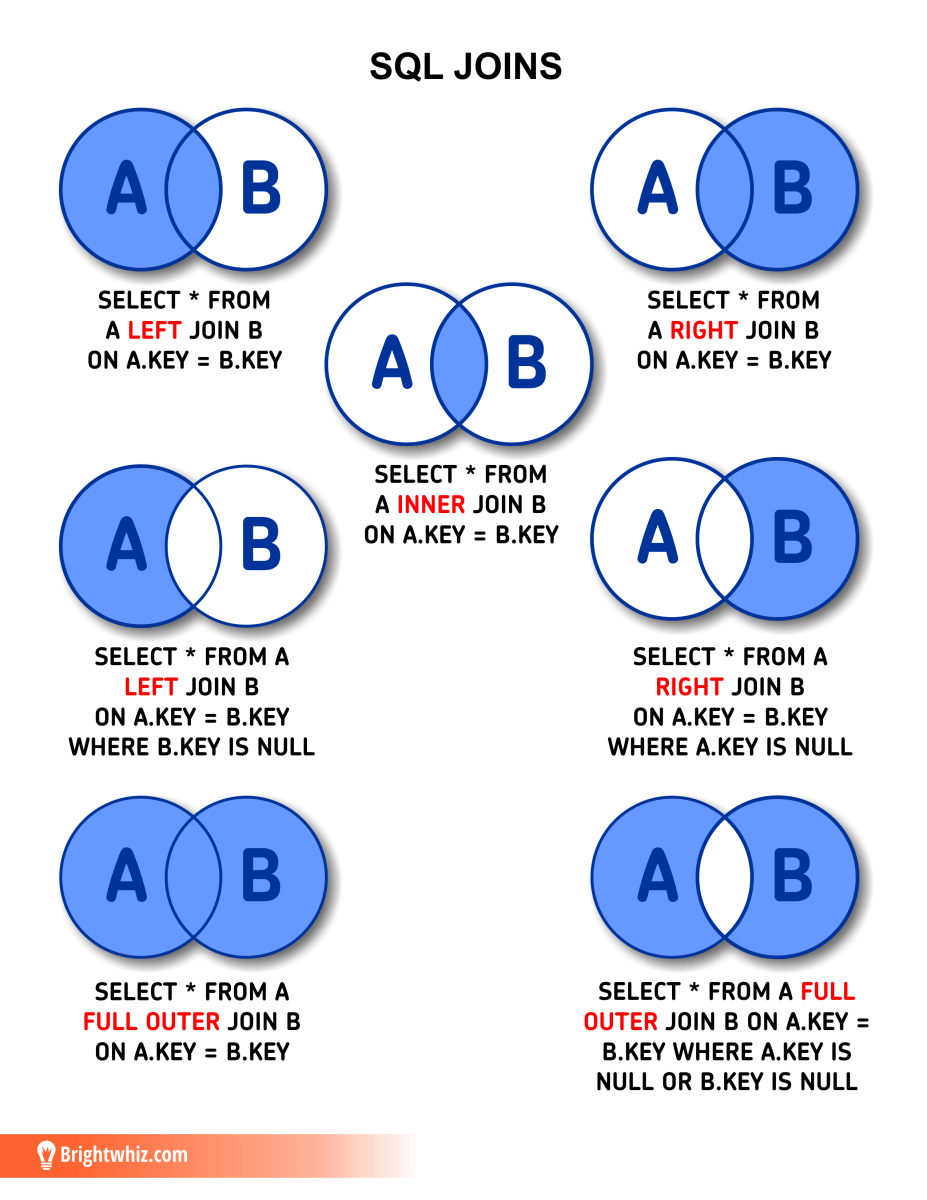Abstract
-
The language used to obtain data from DBMS from Database
-
SQL query execution order, more details can be found here
Comparison
ISis used forNULL=is used to compare values like string and integers etc. Any comparison withNULLwill result infalse, must use IS to evaluate
Aggregation
JOIN

- Combine information from more than one table
Cannot refer to the table returned from the
JOINinside the subquery
- Because the join is not yet materialized at the time the subquery is evaluated
Group By
- We can sum up value with
SUM()under a particular Identifier Category Value - We avg value with
AVG()under a particular Identifier Category Value - Use
COUNTto count the occurrence of identifier
Metadata
- Obtain the length of a string with
LENGTH() - Can be used outside of
SELECT
Terminologies
Entity
- A table that contains unique set of data
Constraints
not null,unique,primary keyvarchar(255),text
Normalisation (Normalised Structure)
Statement
- Codes that do something
- Ends with
;
Identifier
- Column names
- Must specify Constraints
Index
- Lookup table for specific columns
- Used when
foregin keyConstraints aren’t allowed - Pros: Faster read
- Cons: Slower write & additional memory
